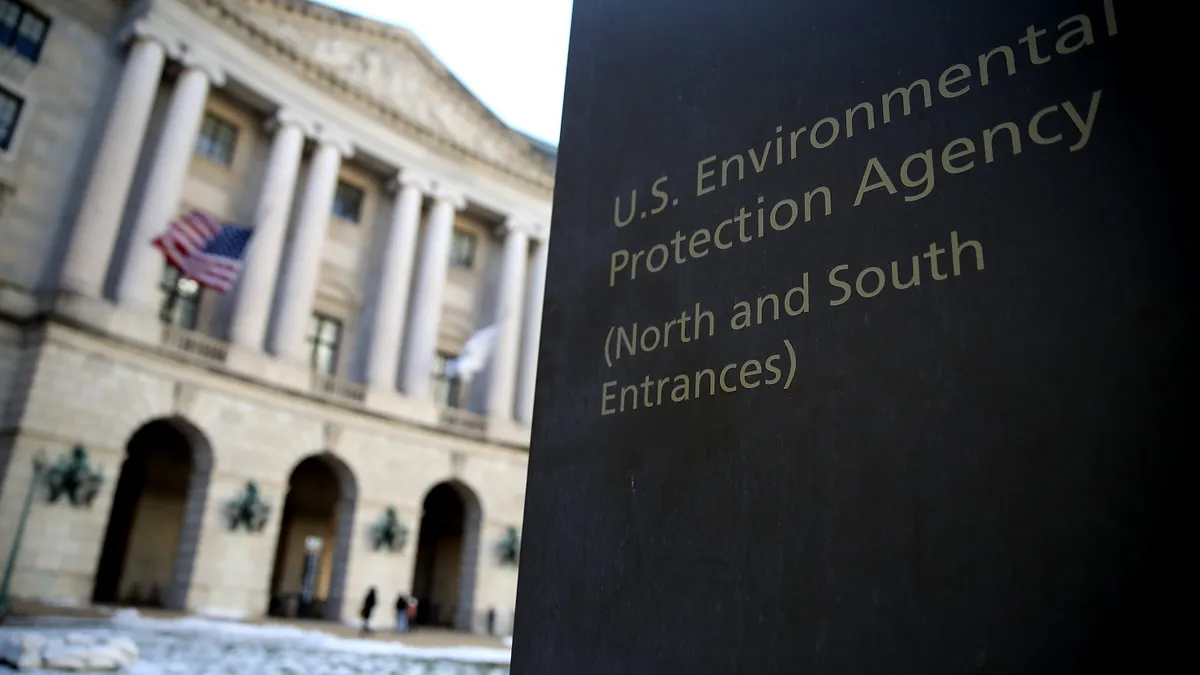The debate over chemical recycling’s place in the plastics recycling landscape has gained more attention this past week as environmentalists, plastics manufacturers and lawmakers urge the U.S. EPA to quickly decide how it should regulate the technology.
The EPA opened a formal rulemaking process last year to determine how to regulate pyrolysis and gasification units, which currently are classified as waste combustion under the Clean Air Act. The EPA said a more in-depth look was needed because it was fielding a significant number of questions about the technologies, "especially with respect to plastics recycling," which had led to "considerable confusion" about which operations it should manage under such regulations.
The regulatory discussion has ramped up in recent days, with numerous activists and lawmakers raising concerns over the technology’s possible climate and environmental justice impacts. It’s unclear when the EPA will make a decision, and a request for comment was not returned as of press time.
In a July 14 letter signed by 35 lawmakers, including Sen. Cory Booker, D-N.J., and Rep. Alan Lowenthal, D-Calif., the lawmakers urged the EPA to continue regulating the technologies as waste combustion, saying the processes emit more carbon dioxide than mechanical recycling and may put vulnerable populations at risk.
In the letter, the lawmakers also asked the EPA to further study emissions from such facilities, saying they may release hazardous chemicals linked to health issues such as cancer. They also expressed disappointment to see the EPA mention chemical recycling in its National Recycling Strategy.
More than 100 environmental groups sent a separate letter to the EPA, saying chemical recycling technology has not been proven to be safe and could be used to turn plastics into fuel instead of recycling them into new plastics.
Last week, the Ocean Conservancy rescinded a major report it had released on ocean plastic pollution, saying it wrongfully promoted incineration as a waste management strategy, and the group clarified it does not support chemical recycling.
Other activists, including the Global Alliance for Incinerator Alternatives, last week asked the EPA to restrict chemical recycling projects’ eligibility for future recycling infrastructure grant funding.
The plastics industry maintains that pyrolysis and gasification units used for chemical recycling of plastics should be regulated as manufacturing processes, saying the methods are critical for improving recycling, keeping hard-to-recycle plastics out of landfills and creating manufacturing jobs.
The American Chemistry Council has helped pass laws in 20 states to regulate chemical recycling sites as manufacturing facilities, with Missouri the latest to sign its law on July 1.
Several plastics industry groups and companies submitted comments on the proposed rulemaking, saying pyrolysis and gasification should not be considered combustion or incineration because the processes do not involve burning plastic in an oxygenated space.
The trade group PLASTICS stated in its comments that the industry prefers the term advanced recycling to the term chemical recycling because in addition to pyrolysis technology, it uses techniques such as depolymerization or methods that use solvents to break chemical bonds.










